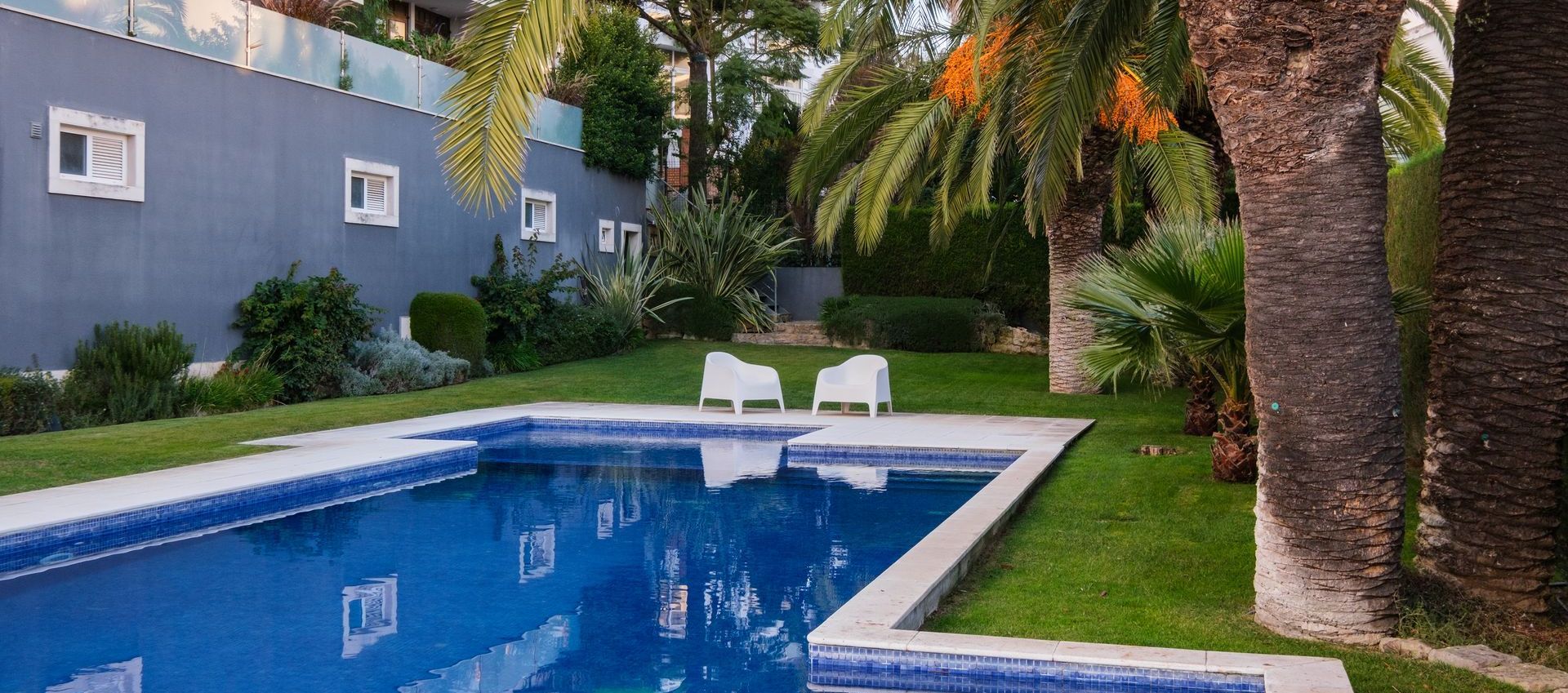Capital Gains Tax Exemptions When Your Secondary Residence is Alojamento Local
Maximizing Your Profits: Navigating Capital Gains Tax Exemptions on Alojamento Local Properties in Portugal

Index
2.Understanding Capital Gains Tax in Portugal
3.What is Alojamento Local (AL)?
4.Primary Residence vs. Secondary Residence
5.Capital Gains Tax Exemptions for Alojamento Local Properties
6.Legal Requirements and Documentation
7.Common Pitfalls and How to Avoid Them
8.Expert Insights: Interviews with Tax Professionals
9.Case Studies: Real-Life Success Stories
10.Future Trends in Portuguese Real Estate Taxation
11.How Portugal Portfolio Can Assist You
14.Conclusion
Introduction
Investing in Portuguese real estate, particularly in the booming Alojamento Local (AL) sector, has become an attractive venture for both domestic and international investors. However, the complexities surrounding capital gains tax exemptions when selling a secondary residence used as an AL can be daunting. This comprehensive guide delves deep into the subject, providing you with actionable insights to maximize your profits while staying compliant with Portuguese tax laws.
At Portugal Portfolio, we are committed to helping you navigate the intricacies of Portugal’s real estate market, ensuring your investments yield the best possible returns.
Understanding Capital Gains Tax in Portugal
Capital gains tax is a levy on the profit realized from the sale of a non-inventory asset, such as real estate. In Portugal, both residents and non-residents are subject to capital gains tax on property sales, but the rates and calculations differ.
For Residents:
• Tax Rate: 50% of the capital gain is added to your taxable income and taxed according to the progressive income tax rates, which range from 14.5% to 48%.
• Exemptions: Various exemptions are available, especially when proceeds are reinvested in another property.
For Non-Residents:
• Tax Rate: A flat rate of 28% on the entire capital gain.
• Exemptions: Limited compared to residents, but certain double taxation treaties may offer relief.
Important Update: As of 2023, legislative changes have been proposed to harmonize tax rates for residents and non-residents. Always consult with a tax professional for the most current information.
What is Alojamento Local (AL)?
Alojamento Local translates to “local lodging” and refers to properties licensed for short-term rentals, typically catering to tourists. This sector has surged in popularity due to Portugal’s thriving tourism industry.
Types of AL Properties:
• Apartments (Apartamento)
• Villas (Moradia)
• Guesthouses (Estabelecimentos de hospedagem)
• Rooms within a residence (Quartos)
Benefits of Operating an AL:
• Higher Rental Yields: Short-term rentals often generate more income than long-term leases.
• Flexibility: Owners can use the property personally when not rented.
• Tax Advantages: Potential for reduced taxation under certain regimes.
Regulatory Compliance: Operating an AL requires proper licensing, adherence to safety regulations, and registration with local authorities. For detailed guidance, visit our Alojamento Local Regulations page.
Primary Residence vs. Secondary Residence
Differentiating between your primary residence and a secondary residence is crucial for tax purposes.
Primary Residence (Habitação Própria e Permanente):
• The main home where you reside the majority of the time.
• Eligible for more generous capital gains tax exemptions, especially when reinvesting proceeds into another primary residence.
Secondary Residence (Segunda Habitação):
• Any additional property owned, such as vacation homes or investment properties.
• Subject to capital gains tax, but exemptions are available under certain conditions, particularly when used as an AL.
Key Point: The classification of your property can significantly impact your tax obligations. Accurate declaration is essential to benefit from available exemptions.
Capital Gains Tax Exemptions for Alojamento Local Properties
Eligibility Criteria
To qualify for capital gains tax exemptions when selling your secondary residence used as an AL, you must meet specific conditions:
1. Reinvestment of Proceeds:
• Reinvest the net sale proceeds (deducting any outstanding mortgage and sale-related expenses) into the acquisition, construction, or renovation of another property in Portugal.
• The new property can be for personal use or rental purposes.
2. Time Frame for Reinvestment:
• 24 Months Before the sale: If you’ve already purchased a new property.
• 36 Months After the sale: If you plan to reinvest after selling.
3. Property Usage:
• The new property must be declared as your primary residence.
• Alternatively, reinvestment in another AL property may qualify under specific circumstances.
4. Proper Licensing and Compliance:
• The AL property sold must have been legally registered and compliant with all regulations during the period of ownership.

Calculating Your Exemption
The capital gain is calculated as:
Capital Gain = Sale Price - (Purchase Price + Inflation Adjustment + Allowable Expenses)
• Inflation Adjustment: Indexed coefficients are applied to account for inflation.
• Allowable Expenses:
• Property improvements and renovations (must be documented and occurred within the last 12 years).
• Costs associated with the purchase and sale (legal fees, notary fees, real estate agent commissions).
Exemption Application:
• Full Reinvestment: If the entire net proceeds are reinvested, you may be eligible for a full exemption on the taxable gain.
• Partial Reinvestment: If only a portion is reinvested, the exemption applies proportionally.
Example:
• Net Proceeds: €300,000
• Amount Reinvested: €200,000
• Exemption Ratio: (€200,000 / €300,000) = 66.67%
• Taxable Gain: Only 33.33% of the capital gain is subject to tax.
Legal Requirements and Documentation
Proper documentation is essential to substantiate your claim for a capital gains tax exemption.
Required Documents:
1. Proof of AL Registration:
• Valid AL license number.
• Registration certificates from local authorities.
2. Property Sale Documents:
• Final deed of sale (Escritura).
• Receipts for sale-related expenses.
3. Purchase Documents of New Property:
• Deed of purchase.
• Proof of payment (bank statements, receipts).
4. Expense Receipts:
• Invoices for renovations and improvements.
• Legal and notary fees.
5. Tax Declarations:
• Previous income tax returns showing rental income declared.
• Declaration of the reinvestment on your tax return for the year of reinvestment.
Tip: Maintain organized records for at least 12 years, as required by Portuguese tax authorities.
Common Pitfalls and How to Avoid Them
1. Missing Reinvestment Deadlines
Issue: Failing to reinvest within the stipulated time frame can nullify your eligibility for the exemption.
Solution: Plan your reinvestment strategy carefully. Consider setting reminders and working with a real estate professional to stay on schedule.
2. Inadequate Documentation
Issue: Insufficient proof of expenses and compliance can lead to denial of your exemption claim.
Solution: Keep detailed records of all transactions, expenses, and communications. Utilize professional accounting services if necessary.
3. Non-Compliance with AL Regulations
Issue: Operating without proper AL licensing disqualifies you from tax benefits and may result in penalties.
Solution: Ensure your property is fully compliant with all AL regulations. Visit our AL Compliance Guide for assistance.
4. Misclassification of Property
Issue: Incorrectly declaring your property as a primary or secondary residence can lead to tax complications.
Solution: Consult with a tax advisor to accurately classify your property and understand the implications.
What are the capital gains tax rates for residents and non-residents in Portugal?
Residents: Taxed on 50% of the capital gain at progressive rates ranging from 14.5% to 48%.
Non-Residents: Taxed at a flat rate of 28% on the entire capital gain.
Can I obtain a capital gains tax exemption if I reinvest in a property abroad?
No, to qualify for the exemption, reinvestment must be in a property located within Portugal and intended as your primary residence.
Do renovation and improvement costs reduce my capital gains tax liability?
Yes, documented expenses on renovations and improvements can be deducted from the capital gain, thereby reducing your taxable amount.
Is it mandatory for my AL property to be fully licensed to qualify for tax exemptions?
Absolutely. Only properties that are fully compliant and legally registered as AL are eligible for capital gains tax exemptions.
How does partial reinvestment affect my capital gains tax exemption?
Partial reinvestment grants a proportional exemption. For example, if you reinvest 70% of your net proceeds, you’ll receive a 70% exemption on the capital gain.
What happens if I fail to meet the reinvestment deadlines?
Failing to reinvest within the stipulated time frame results in the loss of the exemption, and you will be liable to pay the full capital gains tax due.
Can I claim the exemption if I convert my AL property back to a primary residence before selling?
Yes, but you must reside in the property as your primary residence for at least two years before the sale to qualify under primary residence exemptions.
Expert Insights: Interviews with Tax Professionals
Interview with Dr. Ana Silva, Tax Attorney at Lisbon Law Associates
Question: What is the most critical aspect investors should be aware of regarding capital gains tax exemptions on AL properties?
Answer: “Proper planning and documentation are paramount. Investors should engage with tax professionals early in the process to ensure all criteria are met and to maximize available exemptions.”
Interview with Carlos Mendes, Certified Public Accountant
Question: How can investors optimize their tax position when selling an AL property?
Answer: “Leveraging allowable expenses and ensuring full compliance with AL regulations can significantly reduce taxable gains. Reinvesting proceeds wisely and within deadlines is also crucial.”
Case Studies: Real-Life Success Stories
Case Study 1: Achieving Full Exemption through Strategic Reinvestment
Background: Sofia, a Portuguese resident, owned a secondary residence registered as an AL in Algarve. She decided to sell the property and reinvest in a larger AL property in Lisbon.
Outcome:
• Sale Proceeds: €500,000
• Reinvestment: €500,000 into a new AL property.
• Result: Qualified for a 100% capital gains tax exemption.
• Key Factors: Met all eligibility criteria, reinvested the full amount within 12 months, maintained impeccable documentation.
Case Study 2: Partial Exemption Due to Incomplete Reinvestment
Background: Michael, a non-resident investor, sold his AL property in Porto for €400,000 but reinvested only €200,000 in a new property.
Outcome:
• Exemption Ratio: (€200,000 / €400,000) = 50%
• Taxable Gain: 50% of the capital gain was subject to the standard non-resident tax rate.
• Lesson Learned: Partial reinvestment leads to a proportional exemption.
Case Study 3: Denial of Exemption Due to Non-Compliance
Background: Emma operated an AL property without proper licensing and attempted to claim a capital gains tax exemption after sale.
Outcome:
• Result: Denied exemption due to lack of AL compliance.
• Consequence: Required to pay full capital gains tax, plus penalties for operating without a license.
• Advice: Always ensure regulatory compliance to qualify for tax benefits.
Future Trends in Portuguese Real Estate Taxation
• Legislative Changes: Potential reforms aimed at harmonizing tax rates between residents and non-residents.
• Increased Scrutiny: Tax authorities are enhancing audits on real estate transactions to prevent tax evasion.
• Digitalization: Implementation of online platforms for easier tax declarations and compliance monitoring.
• Sustainability Incentives: Upcoming tax benefits for properties with high energy efficiency ratings.
Stay Informed: Subscribe to our Newsletter for the latest updates and expert analyses.
How Portugal Portfolio Can Assist You
Navigating Portugal’s real estate and tax landscape can be complex. Portugal Portfolio offers a suite of services to simplify the process:
• Tax Advisory Services:
• Personalized consultations with tax experts.
• Assistance with tax filings and exemption claims.
• Property Management:
• Full-service management of your AL properties.
• Ensuring compliance with all regulatory requirements.
• Investment Planning:
• Tailored strategies for property acquisitions and reinvestments.
• Market analysis to identify lucrative opportunities.
• Legal Assistance:
• Coordination with reputable law firms for legal documentation.
• Support in dispute resolution and regulatory matters.
Contact Us:
• Email: info@portugalportfolio.com
• Website: www.portugalportfolio.com
Let us help you maximize your investment returns while ensuring full compliance with Portuguese laws.
Resources Hub
•Comprehensive Guide to Capital Gains Tax in Portugal
•Step-by-Step Alojamento Local Registration
•Top Strategies for Reinvesting Property Sale Proceeds
•Portuguese Real Estate Market Trends 2023
•Tax Benefits Under the Non-Habitual Resident Regime
Conclusion
Navigating the complexities of capital gains tax exemptions when selling a secondary residence used as an Alojamento Local requires careful planning, thorough understanding of tax laws, and timely action. By meeting the eligibility criteria, maintaining meticulous records, and reinvesting wisely, you can significantly reduce or even eliminate your capital gains tax liability.
At Portugal Portfolio, our mission is to empower you with the knowledge and support needed to make informed decisions. Whether you’re a seasoned investor or new to the Portuguese real estate market, we’re here to guide you every step of the way.
Don’t let tax complexities hinder your investment success. Contact us today to unlock the full potential of your real estate ventures in Portugal.
Disclaimer: The information provided in this article is for general informational purposes only and should not be considered legal or tax advice. Consult with a qualified professional before making any decisions.













